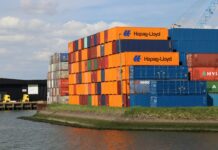
In the rapidly evolving global landscape, the dynamic between the industry and higher education institutions is undergoing extensive transformation. The symbiotic relationship between these two sectors has never been more prominent and critical. The BuyCustomEssaysOnline approach to this topic underscores the importance of collaborative efforts in driving industry advancements. This article will explore how the collaboration between universities and industries is propelling innovation, fostering technology transfer, bridging skill gaps, and promoting sustainable practices.
Research Partnerships between Universities and Industries: Driving Innovation and Breakthroughs
The crucible of innovation and breakthroughs, research partnerships between universities and industries have been the driving force behind many revolutionary advancements. Universities, with their fertile grounds for research and development, provide the intellectual capital, while industries offer practical insights and real-world applications. Together, they form a potent combination that fuels innovation and heralds unprecedented breakthroughs.
In the realm of technology, for instance, these partnerships have resulted in the development of cutting-edge solutions that have significantly disrupted traditional practices. From AI-powered predictive analytics to advanced automation systems, industry-university collaborations have made significant strides in technological innovation.
However, the impact of these collaborations extends well beyond the realm of technology. In the healthcare sector, research partnerships have paved the way for breakthroughs in medical treatments and procedures. The development of innovative drugs, personalized therapies, and advanced diagnostic tools are just a few examples of the transformative impact of industry-university collaborations.
Technology Transfer and Commercialization of Academic Discoveries: Industry Applications
The transfer and commercialization of academic discoveries to industry applications is another significant aspect of industry-higher education collaboration. The process of technology transfer involves the conversion of academic research findings into viable commercial products or services. This is typically facilitated through licensing agreements, spin-offs, or startups.
The commercialization of academic discoveries has led to the creation of numerous products and services that have significantly improved various aspects of our lives. From advanced medical devices and therapies to efficient energy solutions and cutting-edge software, the practical applications of academic research have had far-reaching impacts on various industries.
However, the process of technology transfer and commercialization is not without its challenges. Bridging the gap between academia and industry often requires significant resources and expertise. This is where the role of technology transfer offices (TTOs) comes into play. TTOs, often established within universities, facilitate the transition of academic research into viable commercial products by providing the necessary support and resources.
Workforce Development Programs: Bridging Skill Gaps and Meeting Industry Needs
Workforce development programs, often initiated as part of industry-higher education collaborations, play a crucial role in bridging skill gaps and meeting industry needs. These programs are designed to equip students with the necessary skills and knowledge to meet the evolving demands of the industry.
Workforce development programs often involve a combination of classroom learning, on-the-job training, and internships. This blended approach not only equips students with the necessary theoretical knowledge but also provides them with practical experience and exposure to real-world scenarios.
Furthermore, these programs also provide industries with a pipeline of skilled workers, thereby addressing the problem of skill shortage in various sectors. From advanced manufacturing and healthcare to technology and services, workforce development programs have been instrumental in bridging skill gaps and fostering a skilled and competent workforce.
Collaboration in Sustainable Practices: Addressing Environmental Challenges through Industry-Education Partnerships
In an era marked by growing environmental concerns, the importance of sustainable practices cannot be overstated. Collaboration between industries and higher education institutions in promoting sustainable practices has emerged as a critical strategy in addressing environmental challenges.
Universities, with their research capabilities and intellectual resources, can contribute significantly to the development of sustainable technologies and practices. Industries, on the other hand, can provide practical insights and real-world applications of these technologies.
Moreover, industry-higher education collaborations can also foster a culture of sustainability among students and future industry professionals. Through curriculum integration and practical exposure, students can be equipped with the necessary knowledge and skills to champion sustainable practices in their respective fields.
In conclusion, the collaboration between industries and higher education institutions is a powerful force that can drive industry advancements, foster innovation, bridge skill gaps, and promote sustainability. The BuyCustomEssaysOnline approach underscores the importance of such collaborations, highlighting their potential to transform industries and foster a sustainable and prosperous future.





